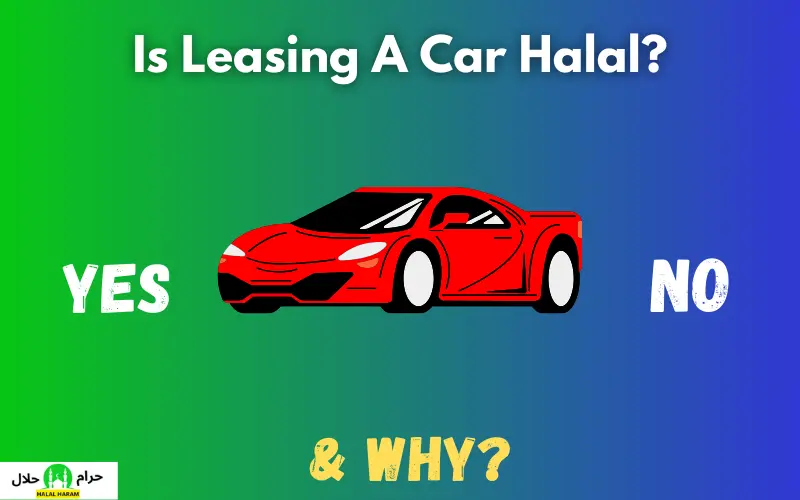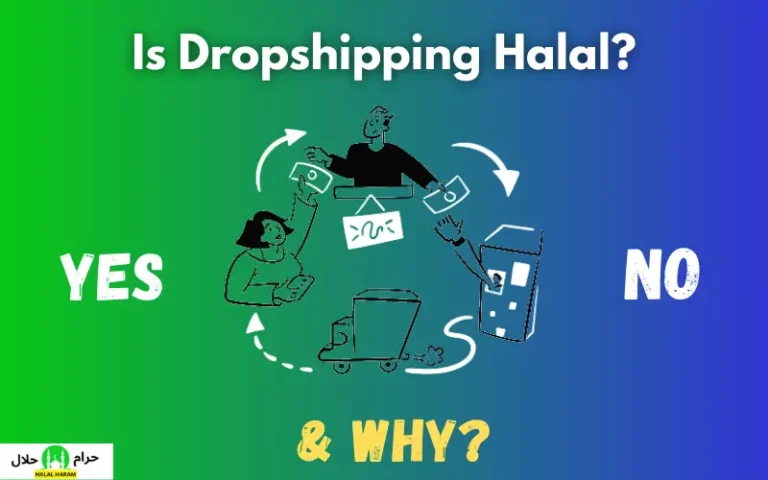Is Leasing A Car Halal Or Haram In Islam?
When it comes to buying a car, there are several options available in the market. One of these options is leasing a car, which has become increasingly popular in recent years.
However, many Muslims have concerns about whether leasing a car is considered halal (permissible) according to Islamic principles.
If you’re one of those Muslims who is considering leasing a car, then this blog post is for you.
In this post, we will answer is leasing a car halal or haram according to Islamic principles and provide you with the necessary information to make an informed decision.

Is Leasing A Car Halal?
Yes, leasing a car can be considered halal if certain conditions are met. First and foremost, it is important to understand the concept of riba (interest) in Islam.
Riba refers to any excess or increase gained by a lender as a condition of a loan. In other words, it is the charging or paying of interest.
Islam prohibits riba as it goes against the principles of fairness and justice. This applies to all forms of riba, including interest-bearing loans.
Now, considering this concept, let’s look at how leasing a car works.
In a typical car lease agreement, you pay a fixed monthly fee to use the car for a specified period (similar to house rent). At the end of the lease term, you return the car to the dealership.
Unlike a loan, you are not borrowing the full amount of money to buy the car. Instead, you are essentially paying for the usage of the car during the lease term.
This means that there is no interest being charged or paid in a car lease agreement. Therefore, it can be considered halal according to Islamic principles.
However, some companies may add additional fees or charges to the lease agreement, which can be seen as a form of interest. It is important to carefully review and understand all terms and conditions before signing a lease agreement.
If you’re into real estate, you can also learn is real estate haram.
How To Identify A Halal Car Lease?
To ensure that a car lease is halal, here are some guidelines to follow:
- Look for an Islamic finance company or bank that offers car leasing services. These companies have a better understanding of Shariah (Islamic law) principles and will provide more transparent and halal options.
- Avoid any additional fees or charges in the lease agreement, such as documentation fees or early termination fees. These can be considered hidden forms of interest and go against Islamic principles.
- Ask for a detailed breakdown of the monthly payment to ensure that no hidden charges or interest are being charged.
- Ask about insurance policies and whether they are included in the lease agreement. Some companies may charge interest on insurance, which should be avoided.
- Make sure the owner of the car is clear. In a car lease agreement, the ownership of the car remains with the leasing company. However, in some cases, there may be clauses that transfer ownership to the lessee (the person leasing the car). This should be avoided as it can lead to riba.
Also see is committee money halal.
What Makes Leasing A Car Halal?
As mentioned earlier, leasing a car is halal as long as there is no element of riba involved. Here are some factors that make it permissible:
- No interest: As discussed above, the absence of interest makes car leasing permissible in Islam.
- Ownership: In a car lease agreement, the ownership of the car remains with the leasing company. This means that the lessee is not responsible for any depreciation in the car’s value or unexpected repairs.
- Fixed monthly payments: Unlike a loan, where interest rates can fluctuate based on market conditions, car lease agreements have fixed monthly payments. This provides stability and predictability for both parties involved.
- Flexibility: Leasing a car allows for flexibility as you can choose to return the car at the end of the lease term or opt to purchase it.
- Clear business model: Car leasing follows a clear business model, the same as renting a house or land. This makes it easier to understand and comply with Islamic principles.
Also note that you can consider halal car leasing as ijarah, which is a lease contract in Islamic finance. It is similar to renting but with the option to eventually own the leased asset.
In the time of Prophet Muhammad (peace be upon him), leasing was a common practice among Muslims and known as maharajah. This shows that leasing is not a new concept and has been accepted in Islam for centuries.
If you use credit card for purchases, you must learn is credit card haram.
FAQs
Q. Is it halal to lease a car?
A. Yes, leasing a car can be considered halal as long as there is no element of riba involved.
Q. Is leasing a car halal or haram?
A. Leasing a car can be considered halal as long as it follows the principles of Islamic finance and does not involve riba.
Q. Is leasing Shariah compliant?
A. Yes, leasing a car can be considered Shariah compliant if it follows the guidelines of Islamic finance and does not involve any prohibited elements such as riba.
Q. Is it haram to pay monthly for a car?
A. No, it is not haram to pay monthly for a car as long as it follows the principles of Islamic finance and does not involve riba. Leasing a car can be considered a permissible option in this case.
Conclusion
In conclusion, leasing a car can be halal if certain conditions are met. It is important to understand the concept of riba and ensure that the lease agreement does not involve any prohibited elements.
By following the guidelines mentioned in this post, you can make an informed decision and choose a halal option for leasing a car.
We hope this blog post has provided valuable information on the topic and answered your query is leasing a car halal in Islam. May Allah guide us in making ethical and lawful choices in all aspects of our lives.






